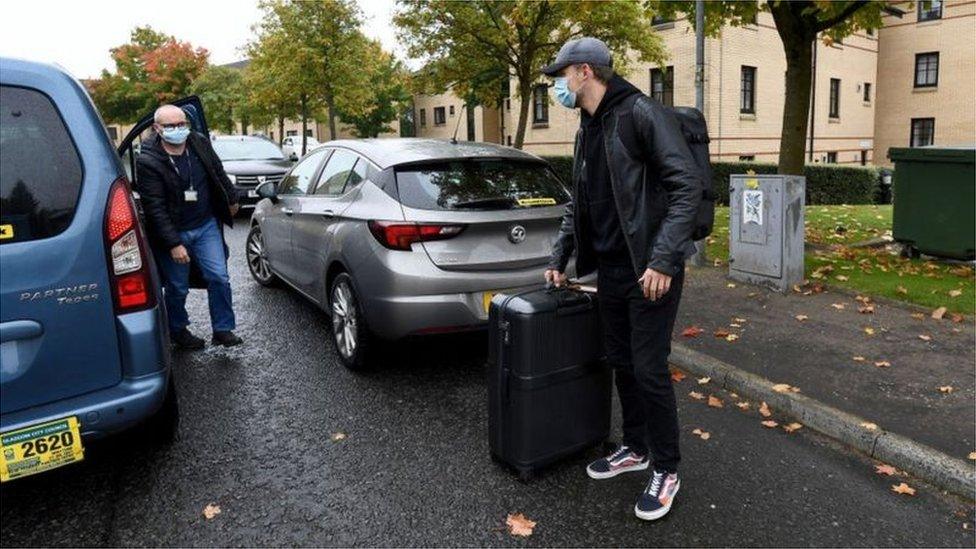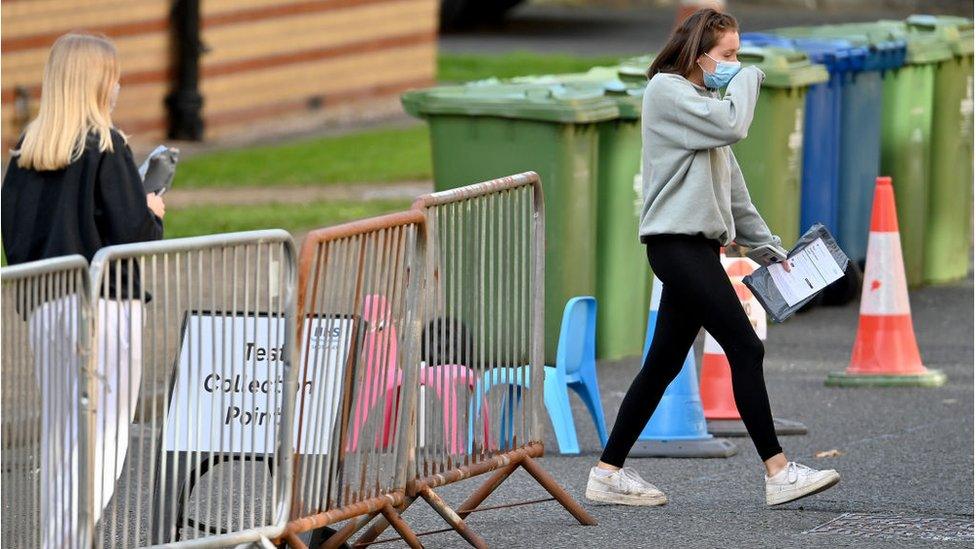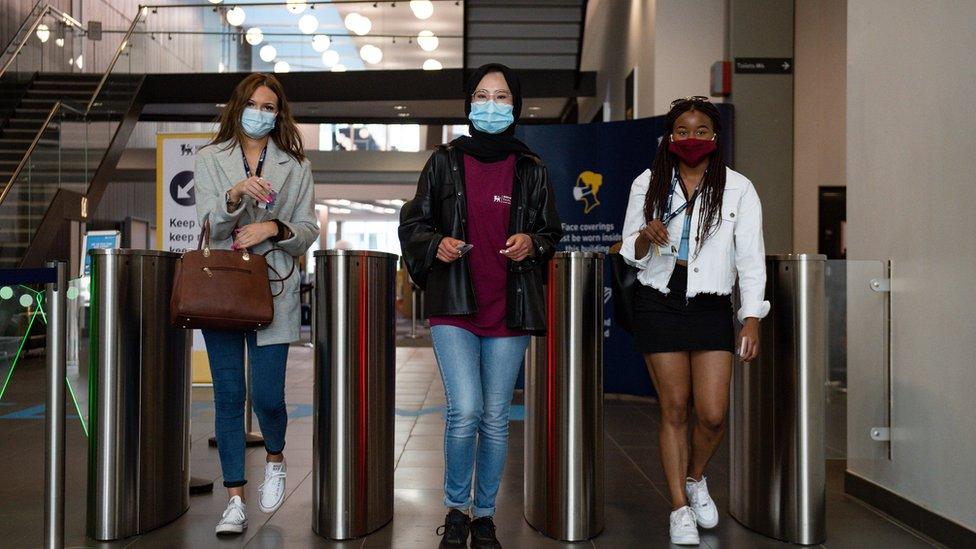Covid in Scotland: Testing plan to allow students home for Christmas
- Published

Students could be allowed home for Christmas if they test negative twice
University students are to be allowed to return home for Christmas in Scotland if they return two negative Covid-19 tests before travelling.
Universities minister Richard Lochhead said up to 80,000 students are expected to travel home at the end of term.
Dates for courses ending are due to be staggered to make sure there is not a "great surge of movement" in December.
And a testing system is being set up UK-wide to ensure students do not carry the virus across the country.
People will be given two tests, five days apart, and those who test negative on both occasions will be allowed to travel.
Those who return a positive result would have to self-isolate, although it is hoped this would end in time for them to go home before the festive period.
Once students are home, they will need to abide by the same restrictions on household gatherings and meetings as everyone else - but there will be no special rules for students at home.
Mr Lochhead told MSPs that students would be advised to "voluntarily reduce their social mixing" for two weeks before going home, only going out for essential reasons.
He said tests "cannot tell us with certainty that someone is Covid-free" because people may be incubating the disease, saying it was "vital for students to continue to follow all of the other measures in place".
And he added that work was ongoing to work out how students should return to universities after Christmas, saying lessons must be learned from outbreaks at the start of term in August.
He said: "It is clear that the return after the new year will not be normal and we will work with the sector to offer as much clarity for students and staff as we can in the coming weeks."

Under the plans students will be tested twice five days apart
Alastair Sim, director of Universities Scotland, said the testing programme would involve up to 65,000 students living in halls and student accommodation.
He told BBC radio's Good Morning Scotland programme that lessons had been learned from the spike in cases at the start of the academic year.
He said: "If you are a student who is going home for Christmas it gives that extra assurance to you, and to the people that you are going home to, that you are not bringing the virus home with you."
Mr Sim added that some in-person teaching on campuses would end early on 30 November to ensure there was no "surge of movement" of students.
Many universities are, however, anticipating more students than usual will remain in university accommodation over the holidays.
In particular, they are aware many overseas students may be unable to return home or may be reluctant to risk travelling in case they need to quarantine once they return to the UK.
'Heartened and encouraged'
In recent weeks, some students have claimed they could have remained at home as their lectures and tutorials are mostly taking place online.
However, universities have argued students still have access to certain facilities which they could not use from home.
Matt Crilly, NUS Scotland president, said students deserved the right to return home for the winter break and he wanted to see a coherent strategy from the Scottish government that allowed students to return home safely, while avoiding mass outbreaks.
"Many students rely on the support networks offered by their friends and families and going home to see them over the Christmas period can be critical for their mental health and wellbeing," Mr Crilly said.
"NUS Scotland is calling for a clear plan that has ample lead time, with a strategy including the use of mass testing, staggered departure dates and compassion.
"However, there will also be many students whose halls are their only home and others who will choose not to return home this festive period. We want to see the Scottish government offering additional support to student associations to ensure all students have access to facilities including catering (even if they are in non-catered halls), access to post rooms and mental health support."


- Published10 November 2020
